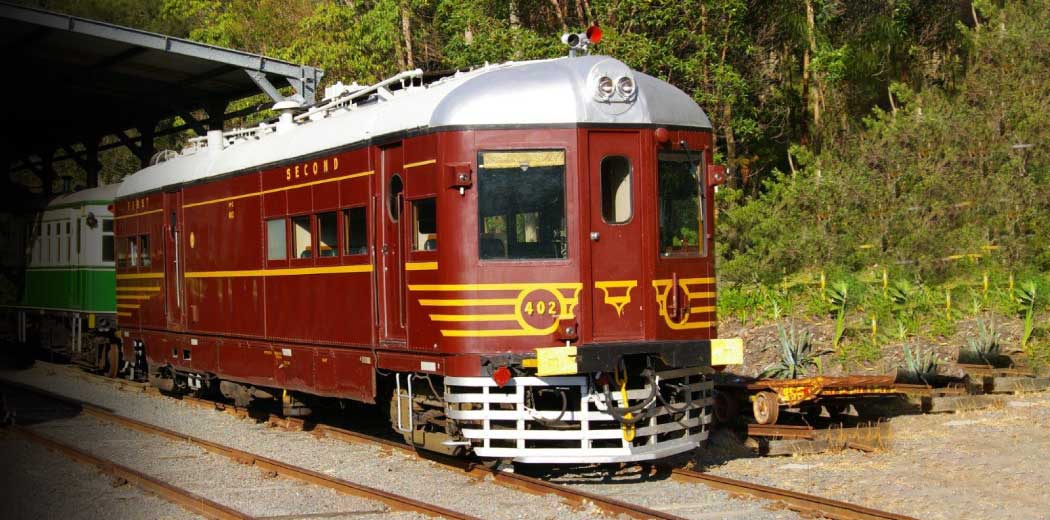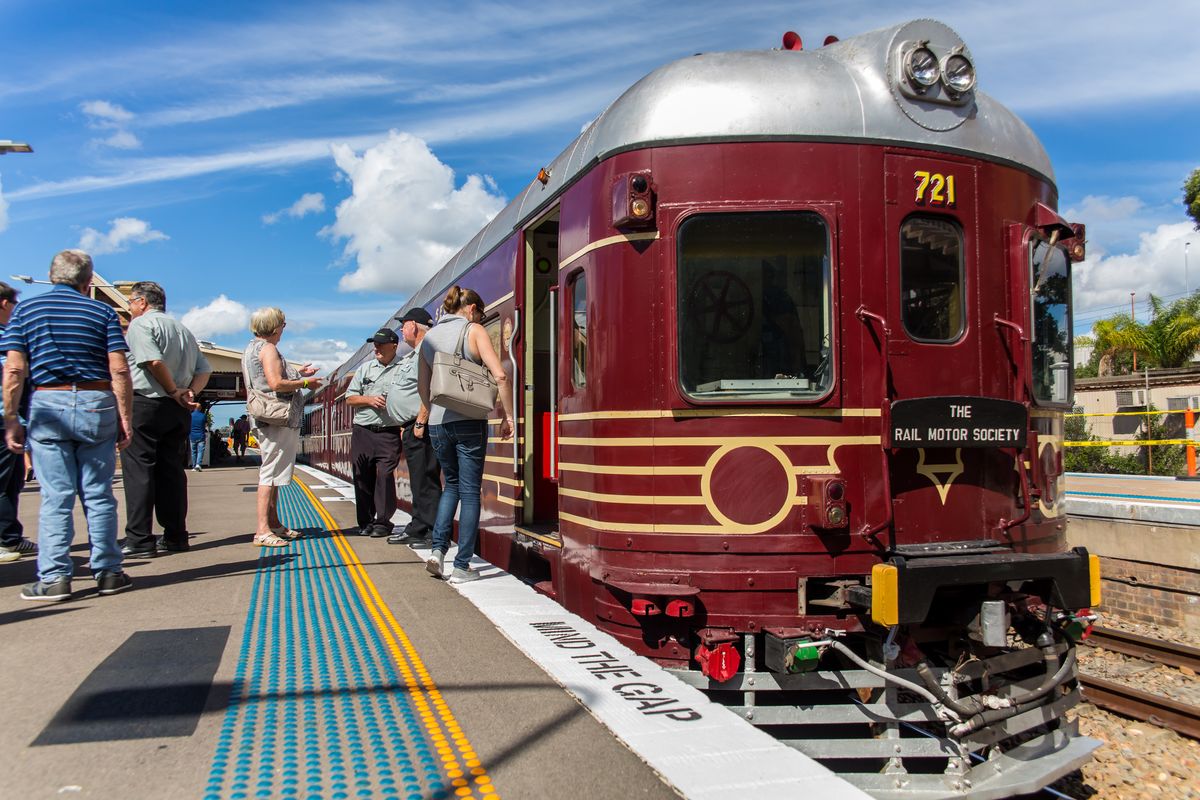402 was taken into Eveleigh Workshops in 1970 and emerged with a small first class compartment at the No.1 End seating 8 passengers.
Continue readingRed Rattler 621/721
After World War II ended the New South Wales Government Railways embarked on a program of modernisation using aluminium construction skills developed to support wartime demand for aircraft components.
Class leader set 621/721 commenced trials on 8 August 1961 with a return run to Penrith. Following a second trial to Katoomba two days later 621/721 was delivered to Newcastle on 21 August 1961. The unit entered operational service on 4 September 1961 and from this time became affectionately known as the Red Rattler.
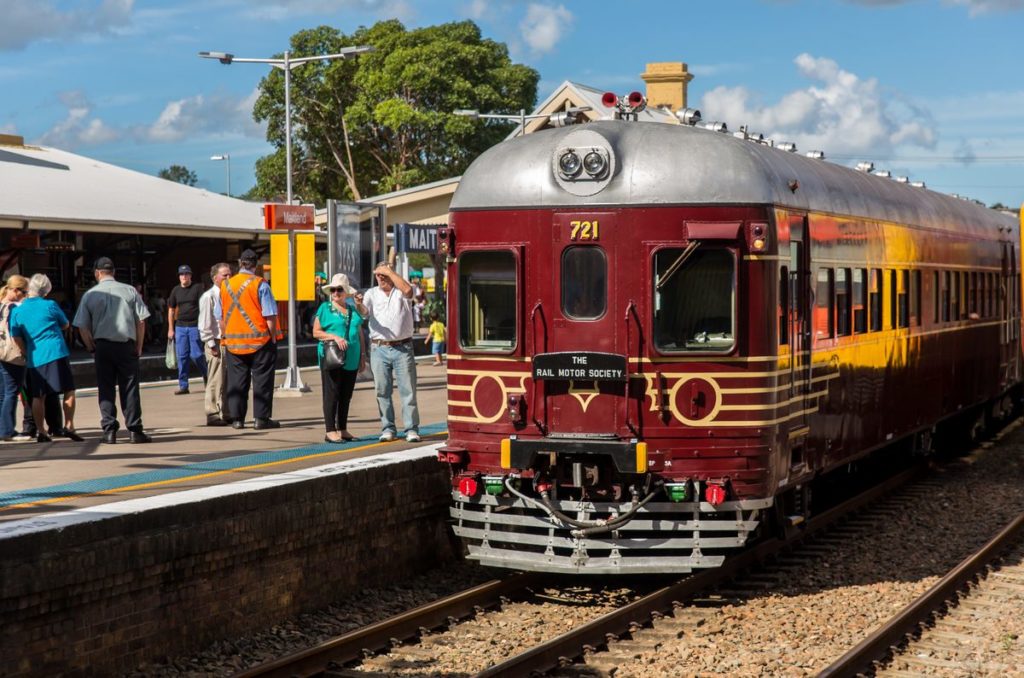
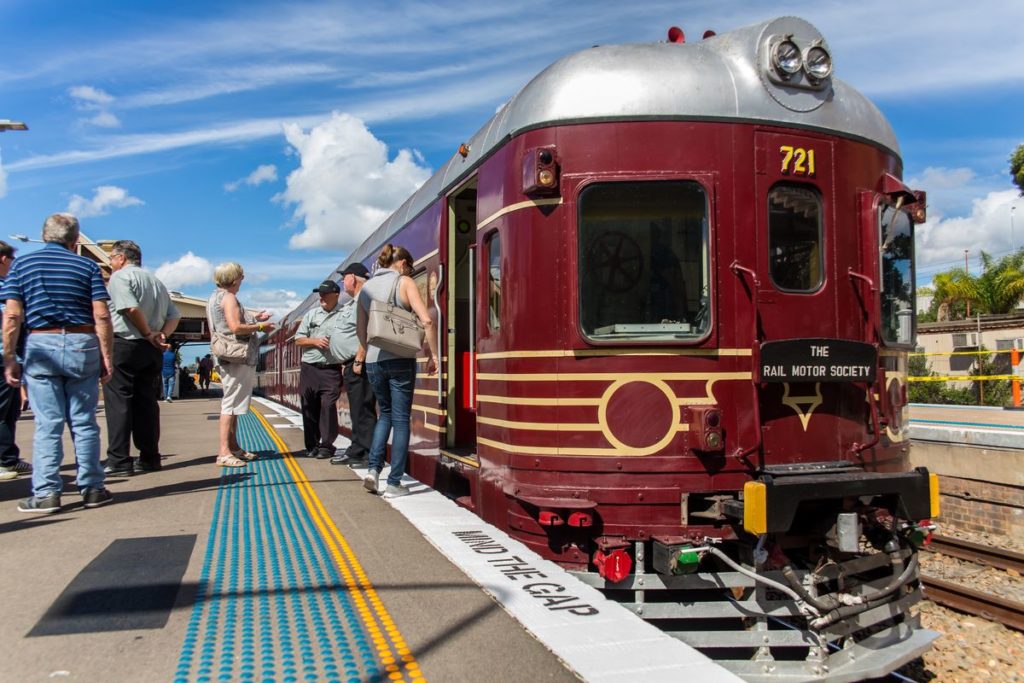
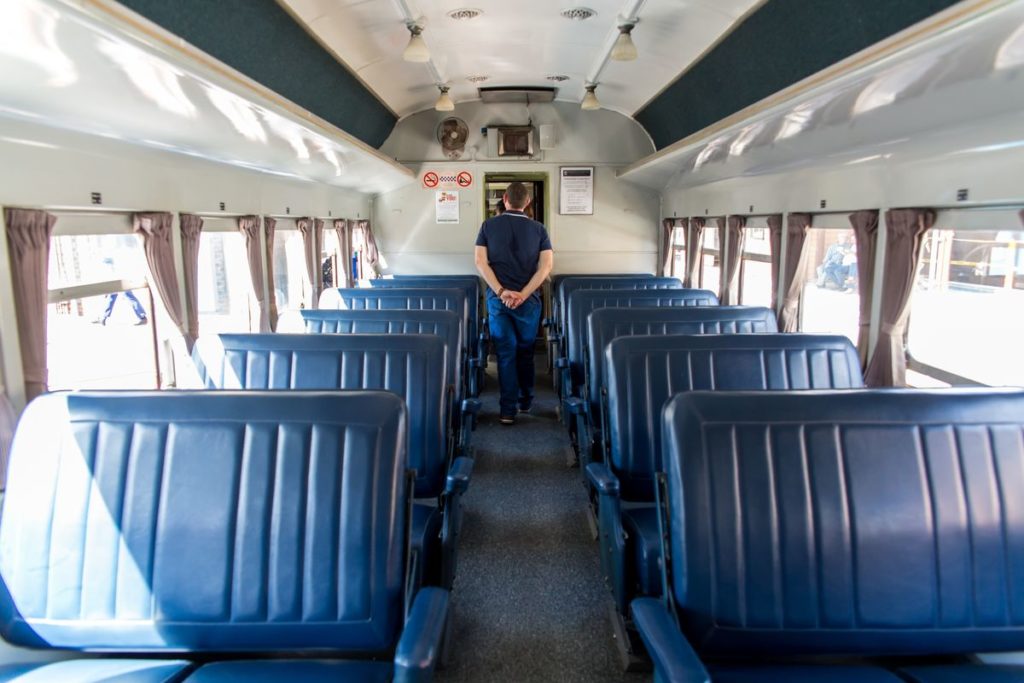
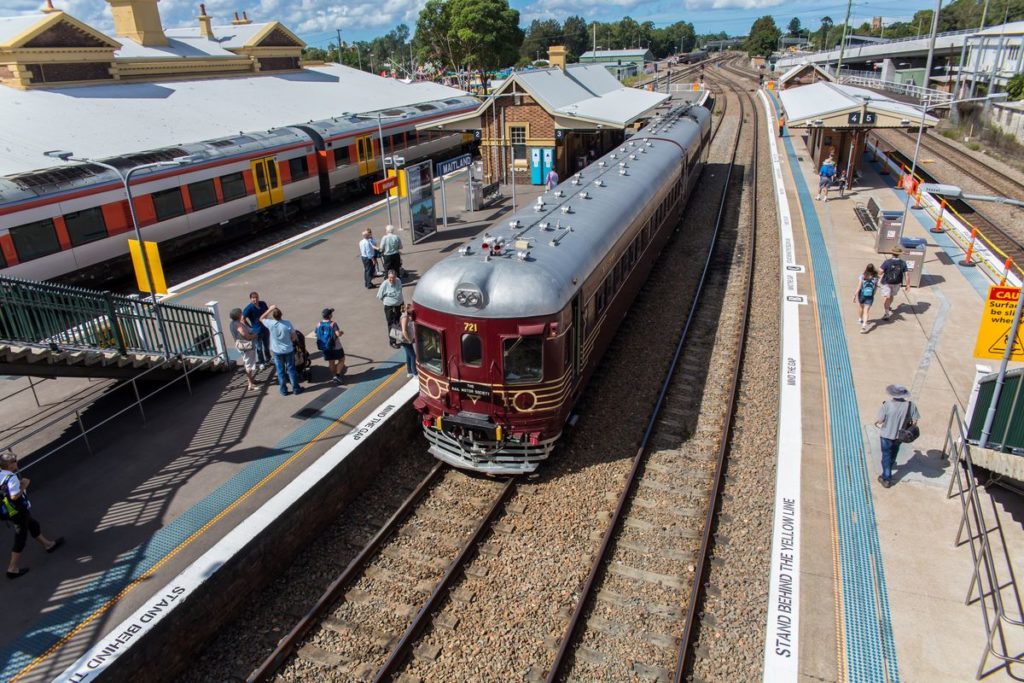
621 was rostered to perform the last regular 620/720 service to Dungog mismatched with trailer car 725 on 2 June 2007. On October 29 of the same year a special RailCorp run to Paterson was organised with invited guests, to farewell the sets and see 621 reunited with 721.
During their service life 621/ 721 spent all of their time on Hunter services. It is therefore fitting that this unit is preserved in the Hunter region and has seen a number heritage services since joining the Rail Motor Society’s fleet.
The Rail Motor Society volunteers dedicated many hours into the restoration of the two car unit which has been repainted in the original Indian Red livery with the traditional “whiskers” lining. Additional works included the repair of a number of minor areas of corrosion and the replacement of timber flooring around the entrance door areas of 621.
In January 2010 621/721 took to the tracks beautifully restored and to the delight of passengers and rail enthusiasts.
The Red Rattler proudly took part in the 30th Anniversary of Hunter Valley Steamfest in 2016.
Tin Hare CPH1, CPH3 & CPH7
Tin Hare is the nickname given to the wooden bodied rail cars introduced on the New South Wales Railways in the 1920’s at around the same time that many greyhound tracks were converting to mechanical hares.
To the railway crews and passengers alike, these fast-running, self propelled trains were the next fastest thing to the greyhound racing hares. The name stuck with them throughout their 50 years of railway service.
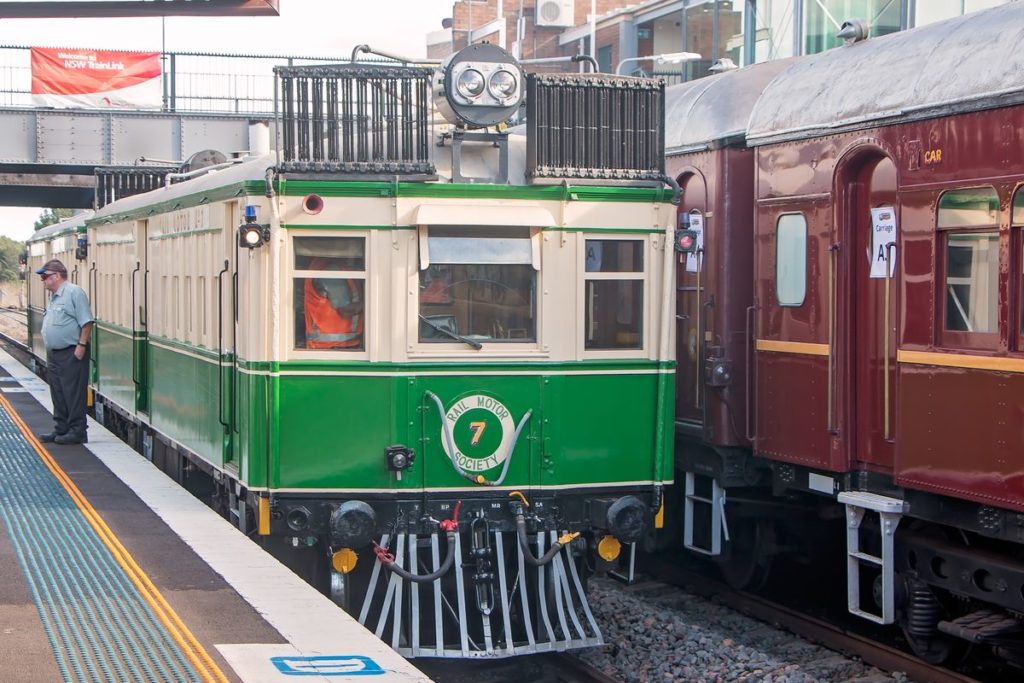
The official name for the ‘Tin Hare’ rail cars is CPH rail motor, or 42 foot rail motors. Between December 1923 and 1930, there were 37 CPH rail motors built.
CPH rail motors began service on country New South Wales rail lines in 1923 and they lasted well into the mid 1980’s, providing 60 years of service and today there are only approximately 10 CPH rail motors in running condition throughout NSW and the ACT.
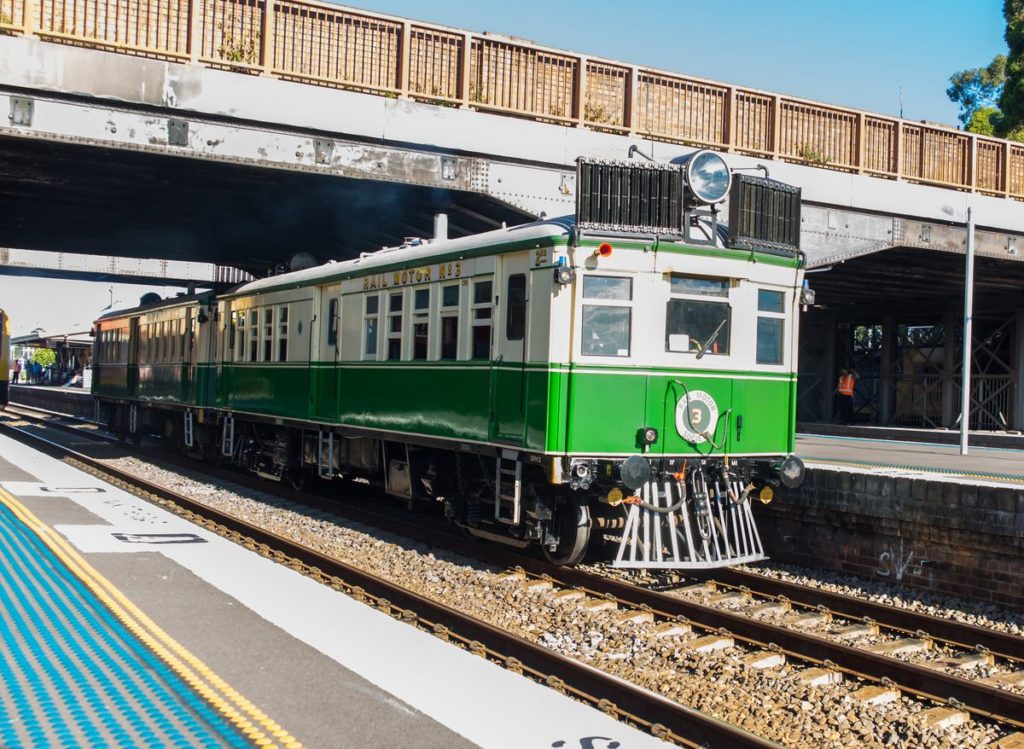

‘Tin Hares’ have windows at the ends of the car which give passengers a driver’s-eye view of the scenery ahead of the carriage. They have good old fashioned cow catchers and (for most of their working lives), roof-mounted radiators which give them their distinctive quaint appearance. The side windows open wide, providing that nostalgic fresh air cooling.
The Rail Motor Society of Paterson provide the Rail Motors and CPH excursion services for Hunter Valley Steamfest and lovingly restore and maintain them throughout the year.
Since its foundation in 1984, The Rail Motor Society has been dedicated to preserving NSW’s railway heritage. Thanks to the passionate efforts of the society’s volunteers, these historic vehicles are here for everyone to enjoy.

